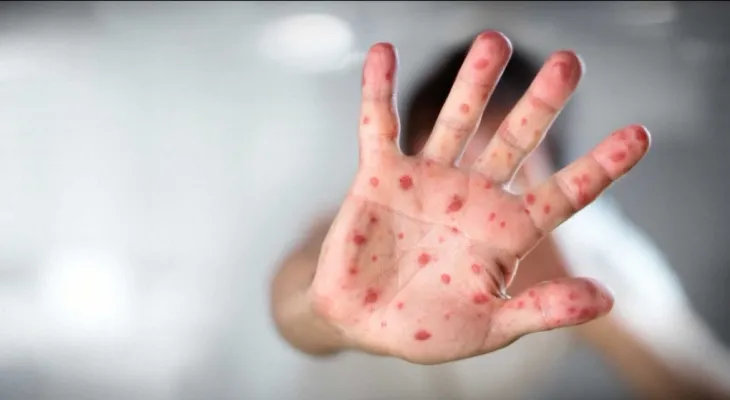Search here
Newspaper
Search here

Arab Canada News
News

Published: March 4, 2024
The regional Ministry of Health confirmed in a statement this Monday morning that during the weekend, the first case of measles was reported in British Columbia.
The confirmed case this weekend is the first recorded in the province since 2019. As of February 29, nine other cases of infection have been confirmed across Canada.
The Ministry of Health in British Columbia announced the case in a statement warning local residents to ensure their vaccination records are up to date, especially before going on spring break trips.
The statement read: "With reports of measles outbreaks internationally and spring break approaching, the regional health officer and the British Columbia Centre for Disease Control and public health officials are reminding people in British Columbia to check their vaccination records before traveling to ensure they are protected."
Globally, measles cases have begun to rise. The World Health Organization reported a 79 percent increase in cases in 2023 compared to 2022, while the Public Health Agency of Canada said last month there has been a "notable recent increase" in cases in Europe.
The first case since 2019
No cases of measles have been recorded in British Columbia for several years. In 2019, the last time the disease was reported in the province, 31 cases were recorded.
That year, many cases in the province were linked to travel from the Philippines and Vietnam, where large outbreaks were occurring at the time, and other cases were linked to travel from the United States. Just under half the cases in 2019 were among youth aged 19 or younger.
In 2018, nine cases were recorded in British Columbia.
Protection against measles
PHAC states that adults and children who have received two doses of the measles vaccine are almost 100 percent protected from the disease. The federal agency confirms that the 2021 National Immunization Coverage Survey shows that 91.6 percent of two-year-old children in Canada received at least one measles vaccine, but only 79.2 percent of seven-year-old children received the second dose.
The first dose of the measles, mumps, and rubella (MMR) vaccine is usually given to children at 12 to 15 months of age. The second dose is given to children around the time of school entry, usually between four and six years old. However, the Ministry of Health in British Columbia says that children under six months old can receive their first dose, especially if they are traveling to places where measles is more common.
It is generally assumed that adults born before 1970 acquired immunity to measles because they likely contracted the infection when the disease was endemic in Canada.
Meanwhile, adults born in 1970 or later likely received one dose of the measles vaccine as children, as PHAC explains the two-dose schedule was not adopted until 1996.
Anyone who suspects they have not received a second dose should speak with their healthcare provider about getting a booster shot, and the Ministry of Health in British Columbia says those without a doctor can receive a free vaccine at their local health unit.
The ministry’s statement said, "Measles is a highly contagious virus and can spread through the air." "People can transmit the virus to others before symptoms appear, and the virus can remain suspended in the air in a room for several hours. This is why protection through vaccination is very important. People at highest risk of measles are those who have not been vaccinated at all against the disease and have not had measles."
The Ministry of Health advises those planning to update their measles vaccine before traveling to aim to do so at least two weeks before their trip for optimum immunity.
Comments